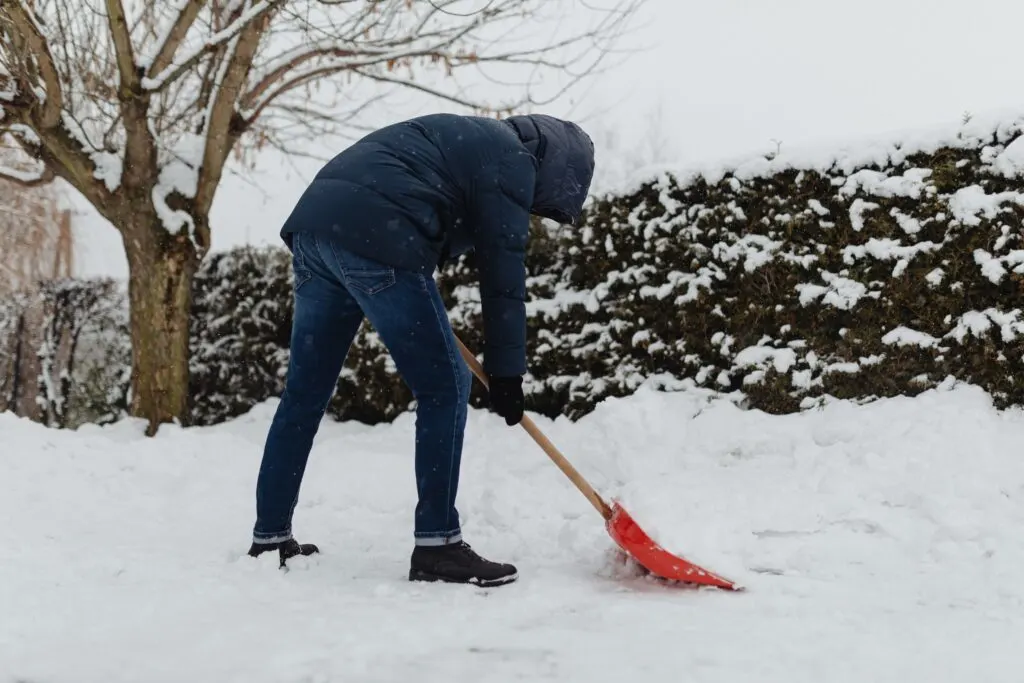Winter can be challenging for your lawns, with the harsh weather conditions often leading to a loss of color and vitality in your green spaces. However, with a few preventive measures and consistent winter lawn care, it’s possible to safeguard your lawn and ensure it remains healthy even during the harshest winters.

This guide will provide tips and strategies to protect your lawn during the winter months and ensure it thrives when spring arrives.
Preparing Your Lawn for Winter
The key to protecting your lawn during winter is to start early and prepare it well in advance. This will help strengthen your grass and make it more resilient against harsh weather conditions. Here are a few steps you can follow to get your lawn ready for winter:
- Keep mowing: As fall approaches, gradually reduce the height of your grass and continue to mow until the first frost. This will prevent disease and promote strong root growth.
- Fertilize: Apply a slow-release, high-quality fertilizer in late fall to nourish your lawn during winter. This will provide essential nutrients for your grass to survive the cold weather.
- Aerate: Aerating your lawn before winter allows air, water, and nutrients to reach the roots more easily, promoting healthy growth.
- Rake and remove debris: Clear your lawn of leaves, twigs, and other debris before winter sets in. This will prevent mold growth and ensure proper air circulation.
Protecting Your Lawn During Winter
Once your lawn is prepared for winter, there are a few things you can do to protect it from the harsh weather.
- Avoid foot traffic: Try to limit foot traffic on your lawn during winter, as the frozen ground can easily damage the grass.
- Keep your lawn clear of snow and debris: Clear any accumulated snow or debris from your lawn to prevent suffocation of the grass.
- Avoid salt: Refrain from using salt or ice melt products on your lawn, as they can damage the grass and soil.
- Avoid overwatering: While keeping your lawn hydrated during winter is important, avoid overwatering as it can lead to disease and fungus growth.
- Consider using a protective cover: If you have delicate plants or shrubs in your lawn, consider using a protective cover to shield them from harsh winter conditions.
Tips for Winter Lawn Care
In addition to the above measures, here are a few winter lawn care tips for taking care of your yard during winter:
- Shovel carefully: When shoveling snow off your driveway or walkway, do not pile it onto your lawn, as this can smother and damage the grass.
- Avoid walking on frozen lawns: If your lawn is covered in frost, avoid walking on it, as the blades of grass can easily break and cause damage.
- Don’t cut your lawn during winter: It’s best to wait until spring to mow your lawn. Cutting frozen or dormant grass can lead to damage and disease.
- Keep an eye out for pests: Some pests may still be active during winter, so keep an eye out for signs of infestation and take appropriate measures to protect your lawn.

Additional Factors to Consider
While protecting and caring for your lawn during winter, it’s also important to consider a few additional factors:
- Type of grass: The type of grass you have in your lawn plays a critical role in how you should care for it during winter. Some grasses are more tolerant to cold weather and require less maintenance, while others are more susceptible to frost and require extra protection.
- Local climate: The severity of winter in your area will influence the level of care and protection your lawn needs. If your area experiences mild winters, standard winter care practices may suffice. However, if your region has harsh winters with heavy snowfall, you may need to take additional measures to protect your lawn.
- Size and layout of your lawn: The size and layout of your lawn can also affect its vulnerability to winter conditions. Larger lawns may require more maintenance, while lawns with sloping areas may be more prone to erosion or waterlogging during winter.
- Age of your lawn: Newly seeded or young lawns may require more care and protection during winter than established lawns.
- Presence of trees and shrubs: Trees and shrubs can provide natural protection to your lawn by acting as windbreakers and trapping heat close to the ground. However, they can also cast shadows that may inhibit grass growth in some areas of your lawn.
- Irrigation system: If your lawn has an irrigation system, drain and winterize it correctly to prevent damage from freezing temperatures. A lawn care company can help with your irrigation system.
Conclusion
Proper care and protection during winter can help your lawn survive the cold and ensure it remains healthy and vibrant when spring arrives. By taking a few precautions and following these winter lawn care tips, you can protect your lawn from winter damage and enjoy a lush, green yard all year round.
So start early, be consistent with maintenance, and your lawn will thank you! So don’t wait any longer; prepare your lawn for winter today.
Remember, a little effort now will go a long way in ensuring you have a beautiful and healthy lawn come springtime.
